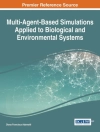This book explores the recent advancements in intelligent transportation sector. In today’s rapidly evolving world, transportation plays a pivotal role in shaping our societies and economies. As the demands on our transportation systems continue to grow, there is an increasing need for innovative solutions to enhance efficiency, safety, and sustainability. This book provides a comprehensive and up-to-date exploration of the intersection between transportation and cutting-edge technology. It offers a thorough examination of the various facets of Intelligent Transportation Systems (ITS) and advanced technologies applied to the transportation sector. It analyzes the latest trends, technologies, and developments that are shaping the future of transportation, including AI, Io T, and smart infrastructure. It provides practical insights, case studies, and real-world examples to help transportation professionals and researchers understand how advanced technology can be applied to address transportation challenges. It discusses the policy and regulatory considerations surrounding the implementation of advanced transportation technologies and explores the potential future developments and advancements in the field, including the impact of emerging technologies.
Daftar Isi
Chapter 1: Introduction to Intelligent Transportation System and Advanced Technology.- Chapter 2: A Systematic Review on Renewable Hydrogen application in the Land Transportation Sector.- Chapter 3: Efficiency Improvement of Reverse Logistics by Managing Its Implementation and Analyzing Customer Behavior.- Chapter 4: Studying the effectiveness of synthetic rutile made from inferior quality ilmenite ore.- Chapter 5: Unearthing the Origins: A Comprehensive Analysis of Root Causes Behind Major Accidents in India’s Midstream and Downstream Petroleum Sector.- Chapter 6: Waste to biofuel production for the transportation sector.- Chapter 7: Enhancing Multimodal Transportation in India: Jogighopa Multimodal Logistics Park.- Chapter 8: Management of Intelligent Transportation System And Advanced Technology.- Chapter 9: Integration of Cycling with Public Transportation.- Chapter 10: Intelligent Technologies in High Speed Rail Transit Systems.- Chapter 11: The Management of GPS Tracking Systems In Transportation.- Chapter 12: Impact of Green Energy in Transportation Sector in Coming Future A review of previous technologies and a new framework.- Chapter 13: Effect of Surface Roughness on The Hydrophobicity.- Chapter 14: Analysis of Friction Between Various Types of Roads and Tyres.- Chapter 15: Neighbourhood Walkability as a Determinant of Sustainable Transport Mode Choice: Evidence from Nigeria.- Chapter 16: Contact Interface Analysis of Polymer-based Hydrophilic Surfaces.- Chapter 17: Cost construction management of aerial rope systems for sustainable public transport in green cities.- Chapter 18: Advanced techniques in upgrading biomass waste bio-oil for use as a suitable biofuel.- Chapter 19: Discharge Characteristics and Comparative Analysis of Different Plan Forms of Weirs in Hydraulic Engineering.- Chapter 20: Advancements in Vibration Analysis for Rail Vehicle Dynamics.
Tentang Penulis
Dr. Ram Krishna Upadhyay is currently working as an assistant professor at the Gati Shakti Vishwavidyalaya, Vadodara, a Central University, established by the Ministry of Railway, Government of India. He has received his Ph.D. and M.Tech. from the Indian Institute of Technology (ISM) Dhanbad in Mechanical Engineering with a broad specialization in Surface Engineering and Tribology. Before joining Gati Shakti Vishwavidyalaya, Dr. Ram worked as Postdoctoral Fellow at the Indian Institute of Technology Kanpur. His research interests include lubrication and materials wear for industrial application, tribology of additive manufactured parts, and nanocomposites. He is a recipient of the SERB-ACS NPDF best poster competition award by the Science and Engineering Research Board, New Delhi, and the American Chemical Society, U.S.A. He published several journal papers, book chapters, edited a book, and completed a project funded by the Science and Engineering Research Board, New Delhi.
Dr. Sunil Kumar Sharma is an assistant professor at the Gati Shakti Vishwavidyalaya, Vadodara, a Central University, established by the Ministry of Railway, Government of India. He has received his Ph.D. from the Indian Institute of Technology, Roorkee. He worked at the Non-destructive Evaluation and Structural Health Monitoring Laboratory at C. N. University, South Korea. His research interests are vehicle dynamics, contact mechanics, mechatronics, and real-time software-enabled control systems for high-speed rail vehicles. He published several research articles in national and international journals, contributed book chapters, and edited a book. Dr. Sharma is also featured among the top 2% of scientists in a global list compiled by Stanford University, USA.
Dr. Vikram Kumar is currently at IIT Kanpur. He received his Ph.D. in Mechanical Engineering from the Indian Institute of Technology Kanpur, India, in 2018. His areas of research include polymer and composite coating; wear, friction, and lubrication; IC engine tribology; alternative fuels; advanced low-temperature combustion; engine emissions measurement; particulate characterization. Dr. Kumar has edited 4 books and authored 10 book chapters and 19 research articles in international journals and conferences. He has been awarded with ‘ISEES Best Ph.D. Thesis Award’ (2018), ‘Senior Research Associateship under ‘CSIR-POOL Scientist’ (2018-2021). He is a lifetime member of ISEES.












